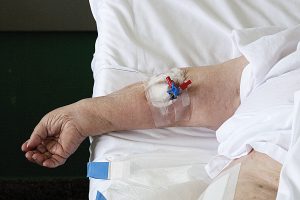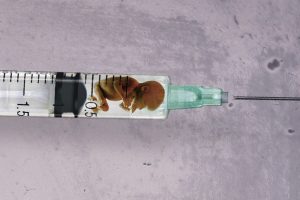Search
Pain can have far-reaching effects on people’s quality of life. Improper treatment is a serious healthcare issue and an ethical problem of the first degree, directly affecting people and potentially undermining their dignity.
Children experience pain just like adults, since nerve pathways develop during pregnancy. Pain in infants has particular connotations because it is difficult to assess, but there are validated methods to detect it and, above all, there are procedures and medicines to treat pain effectively in children.
Pain is one of the symptoms for which patients seek medical treatment most. It affects 12% of the population and is considered severe in one third of these cases. This article reviews the different types of pain, both acute and chronic, and new pain-management treatments.
Numerous drugs with analgesic effect can be used to treat pain. Opioids are effective for moderate to severe pain, while nonsteroidal anti-inflammatory drugs and especially paracetamol (acetaminophen) are useful to treat mild or even moderate pain. Analgesics should be used according to guidelines, and users should be aware of their adverse effects, avoiding them whenever possible, and steering clear of overuse.
Pain is a subjective sensation, so to objectify its intensity different types of scales are used whereby the patient can indicate the degree of pain being treated. The effect of analgesic drugs is evaluated in clinical trials subject to strict rules in order to compare the effect of the medication with that produced by substances without analgesic activity.
This article addresses the advent of the theory and treatment of chronic pain from the second half of the nineteenth century until the mid-twentieth century. It would appear that pain medication emerged from the confluence of practices related to treating patients with terminal diseases and those suffering from incurable pain.
Pain is the most common symptom of human disease and has accompanied living beings since their advent. It has been argued that pain is part of human identity, not only as an unpleasant sensation –complex from the neurological viewpoint– but because it is accompanied by affective factors, which make us question our reason for being.
There are various medical conditions that make women lose babies during pregnancy. That is why several enlightened countries facilitate the transplantation of foetuses either free or at token cost. Unfortunately, Spain is not one of them but many women and groups think it should be. Becoming a mother or father is simply too important to allow red tape to stop volunteers from helping couples have a child.
The International Association for the Study of Pain (IASP) declared 2011 the Global Year against Pain. Within this context, September 2011 witnessed the seventh European Conference on the Social Impact of Pain in Europe while the European Week against Pain was held from the 10th to the 14th of October.








